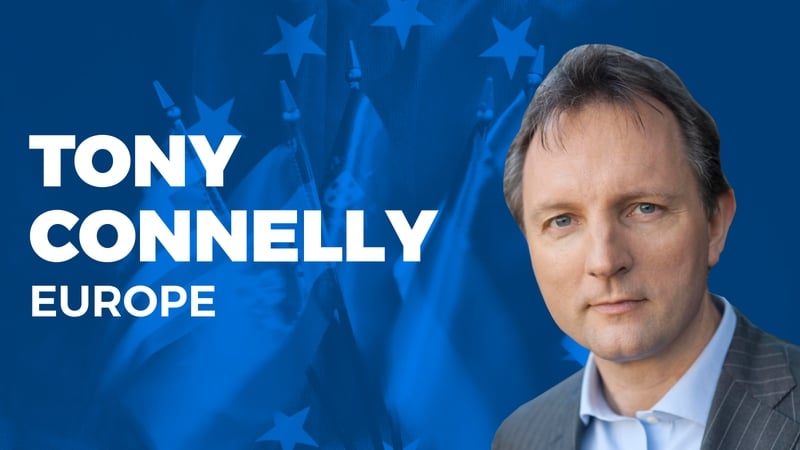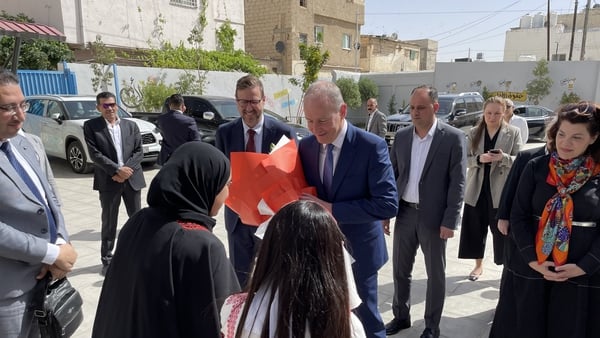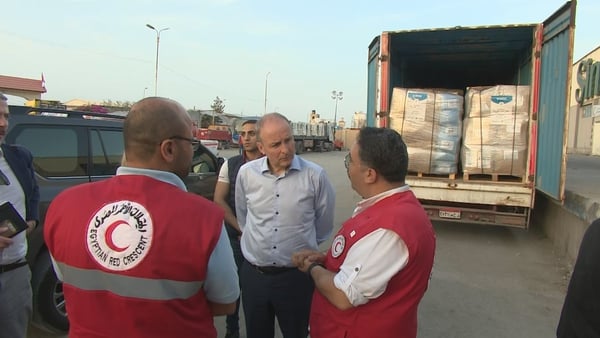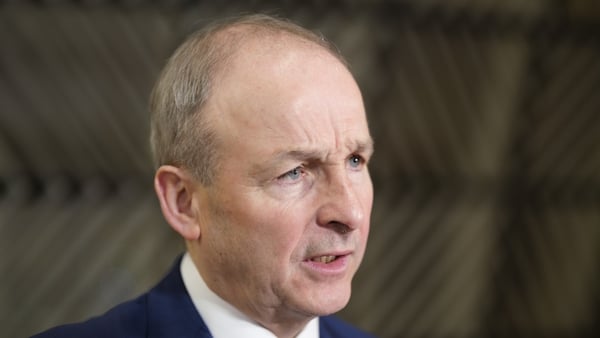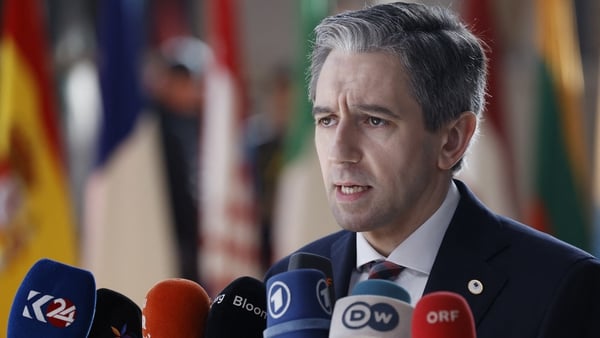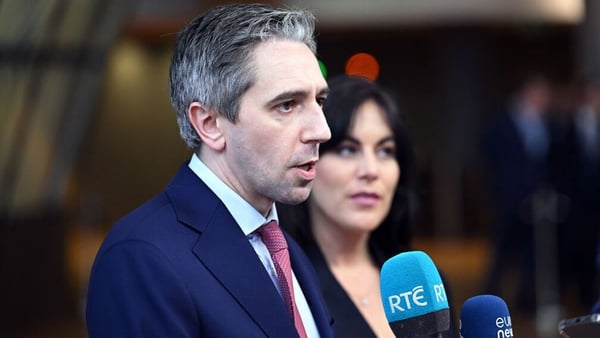As the EU and UK continue to prepare for the trade negotiations, there are clear signs that all is not well when it comes to implementing the divorce part of Brexit, in particular the Irish Protocol.
This has to be done in parallel with the trade talks, and the Protocol will need to take effect on 1 January 2021, just ten months away.
It's now clear there is a real difference of opinion over how the Protocol should be implemented.
To recap, the Protocol on Ireland/Northern Ireland ensures there will be no hard border on the island of Ireland.
Northern Ireland remains in the UK’s customs territory, but it applies EU customs law, and it effectively stays in the EU’s single market for goods.
The sea border between Great Britain and Northern Ireland therefore becomes the Single Market’s de facto external border.
Goods moving from Great Britain to Northern Ireland will be subject to tariffs, as well as regulatory checks and controls. If there is no risk of the goods continuing on over the land border, then there will be tariff exemptions or rebates.
That’s putting it at its simplest. But that has to be converted into something that is legally clear and watertight for businesses, politicians and consumers.
It will, indeed, be a challenging new regime.
The regime will be implemented by a Joint Committee, made up of European Commissioners on the EU side, and cabinet ministers on the UK side. There will also be a Specialised Committee, made up senior officials from both sides, but it will be the Joint Committee that makes the decisions.
According to a number of EU officials and diplomats, there is a misunderstanding on the UK side about the scope of the Joint Committee.
To the EU, the Joint Committee has two roles: it makes sure there is a regime in place to do the checking and monitoring, including the development of IT systems and databases.
The second role is to work out what goods, or categories of goods, are deemed not at risk of crossing the land border into the single market.
Once that distinction is made, those goods may enjoy a tariff exemption or rebate.
However, the EU insists that that is all the Joint Committee can do. It cannot, they say, start to whittle down the levels of checks and controls.
This is spelled out in an internal paper circulated by the European Commission to member states on 4 February, and seen by RTÉ News.
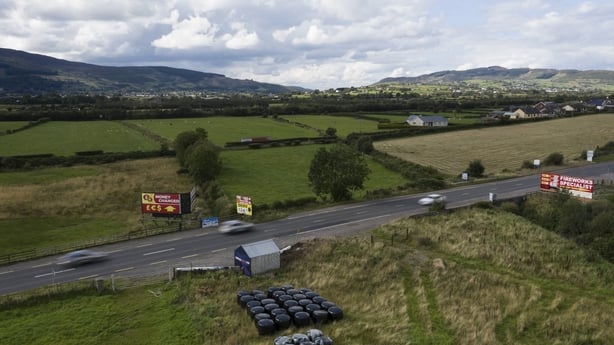
The paper spells out the objectives of the Protocol, describing it as "a fully legally operative solution for Northern Ireland ... to remain in the UK’s customs territory".
However, Northern Ireland would "apply the Union’s Customs Code (UCC), as well as checks and controls, on all goods coming from third countries as well as from Great Britain …" and would "remain aligned to the relevant EU rules (customs, sanitary and phytosanitary rules, regulatory compliance, state aid, VAT and excise rules".
The paper makes it clear the Joint Committee would have two goals: one to ensure the Protocol was properly applied, the second to decide what goods might be exempt.
But these tracks would be separate.
"Let's focus on this specific issue in the Joint Committee to get it done," says one EU diplomat. "But don’t put the whole framework in to the discussion. We have no indication the UK government wants to do that - but some reports in the UK press point to another direction."
Here the diplomat may have been referring, not just to Boris Johnson’s repeated claims that there would be no checks or controls on the Irish Sea in either direction, but also to comments by the Foreign Secretary Dominic Raab earlier this month.
Raab was asked on Sky News if Michel Barnier was correct in his Queen's University speech that checks and controls were a mandatory part of the Protocol. "No," he replied, "it's directly in conflict, not just with the Withdrawal Agreement but the undertakings in the political declaration [setting out the two sides' future relationship]".
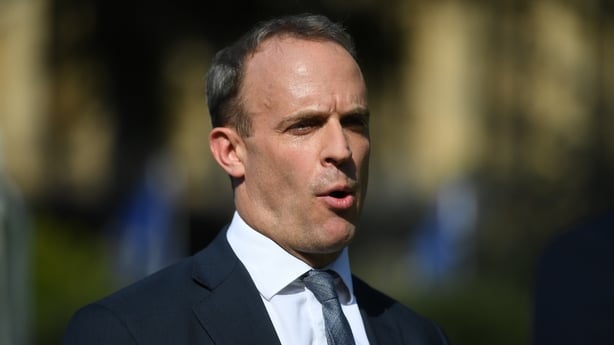
Just 24 hours into his job as new Northern Ireland Secretary Brandon Lewis said: "We are absolutely clear. As a UK government, we will not be having a border down the Irish Sea."
This is sharply contradicted by EU officials who say such controls are clearly set out in the Withdrawal Agreement, which is in force as an international treaty since 1 February.
EU sources suspect the UK regards the Irish Sea arrangements as a moveable feast, depending on how the Free Trade Agreement negotiations pan out.
They are also concerned that London believes the Joint Committee’s role is to row back on the nature and degree of the customs and regulatory formalities.
This is born out by the UK government’s promise in the New Decade, New Approach paper, which helped restore the Northern Ireland institutions.
In an annexe to the main document, the UK promises "we will aim to negotiate with the European Union additional flexibilities and sensible practical measures across all aspects of the Protocol that are supported by business groups in Northern Ireland and maximise the free flow of trade".
A number of EU officials have said that the "practical measures" have already been negotiated and are legally binding under the Withdrawal Agreement.
The Joint Committee, they insist, is not a forum for renegotiating the Withdrawal Agreement.
This means on the EU side, there is a determined sense of what the legal certainty is. However, on the UK side, there appears to be an institutional scrambling to understand what the Protocol means and how it will work.
That is largely because the EU is clear that this is a matter for the UK to organise, and the legal implications for the UK are immense.
On Tuesday, in the Palace of Westminster’s Committee Room 3, the wise and occasionally grizzled Lords and Ladies of the upper chamber’s EU Committee spent 90 minutes politely dragging three of the brightest minds in the business through the tangled complexities of the Protocol.
They included Lord Kerr of Kinlochard, a former British diplomat and putative author of Article 50, the former Chancellor Lord Lamont of Lerwick, Baroness Brown, a former chief executive of the Institute of Physics and Lord Ricketts, a former ambassador to France.
They were questioning Colin Murray, from the University of Newcastle who is leading a major research project on the impact of Brexit on governance and identity in Northern Ireland; Syvlia De Mars, also from Newcastle but currently a senior researcher in EU and International Law and Policy at the House of Commons Library; David Henig, a former senior UK trade official and director of the UK Trade Policy Project.
Despite their heroics and grasp of the issues, there were times that answers trailed off into frustrated frowns.
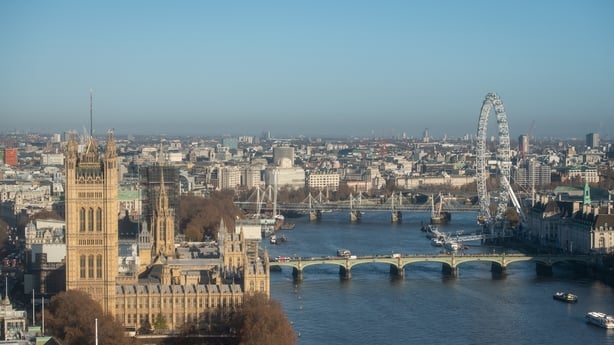
"You just realise how complex it is," confessed Henig. "We’re not just dealing with this Protocol. The Protocol interfaces with the Good Friday Agreement, it interfaces with the Common Travel Area with Ireland, it will interface with WTO rules, it will, in the future, interface with the Free Trade Agreement (FTA) between the UK and EU."
Colin Murray said Northern Ireland was now "at the centre of a very complicated and convoluted Venn diagram. It is the space in which the EU’s single market and the UK’s internal market are going to overlap…When you think about Northern Ireland within that space you have to put together a set of rules that will allow civil servants and members of the NI Executive to make policy and to administer law essentially having one foot in each of these different arrangements.
"That in itself is particularly difficult to envisage," he concluded, noting that a newly formed and fragile Stormont Executive was being bounced into this with just ten months to get it right.
Sylvia De Mars pointed out that keeping Northern Ireland in the single market requires compliance with 300 pieces of EU law.
While the Protocol, with one or two paragraphs, breezily references where the EU’s customs regime takes effect, Ms De Mars helpfully pointed out that the Union Customs Code is 2,000 pages long.
One of her observations was particularly interesting. "The EU is agnostic as to how this works," she told peers.
In other words, figuring out how this Venn diagram will operate legally is entirely up to the UK government.
Who would carry out the checks and controls? If the UK failed to implement the checks and controls (through which UK border officials are expected to collect revenue going to the EU), would the UK be brought to the European Court of Justice and fined as if it was a member state?
Or would the devolved administration in Stormont be responsible? Who gets to access the Specialised Committee? Will there be transparency when it comes to the deliberations on which goods enjoy exemptions? What happens if Stormont is unwilling, or unable, to agree laws to put this in place?
On the question of what happens if the UK does not correctly apply the checks and controls, EU sources have made it clear that, indeed, the UK can be treated just as a member state and taken to the European Court of Justice.
Article 12(4) of the Protocol makes it clear that "in particular, the Court of Justice of the European Union shall have the jurisdiction provided for in the Treaties in this respect".
The European Commission believes it has the same powers as when it comes to member states and that if the UK does not enforce EU law correctly, then the Commission can start an infringement procedure which could end up in the ECJ.
Not only that, officials insist that the Withdrawal Agreement Act itself means the Protocol’s obligations are directly enforceable through the UK courts as well. That means that all the mechanisms that exist with the EU to enforce EU law through the national system and then ultimately through infringements in the ECJ are available in principle.
Complicating things further is the fact that Northern Ireland is having to take on a quasi trade competence, yet the UK has sole competence when it comes to trade - not the devolved administration of Northern Ireland.
Colin Murray told the Committee that when it came to implementing the Protocol, the Withdrawal Agreement Act handed powers both to ministers in Westminster and to Northern Ireland ministers in Stormont, and in places these powers overlapped.
"How that overlap is resolved has not been set out yet," he told peers. "We are still in the territory of working out where that will be divided up."
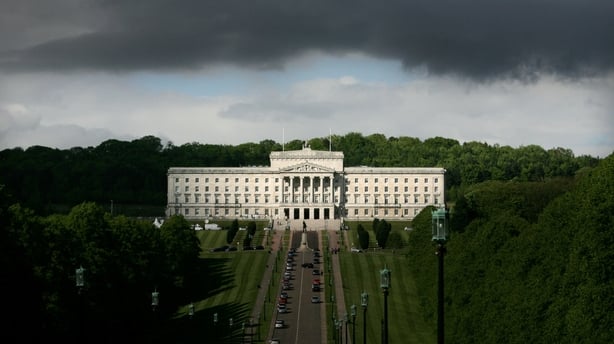
Of course, if the EU and UK can manage to conclude a zero-tariff, zero-quota trade deal by the end of the year, then that removes the whole element of having to work out which goods going to Northern Ireland should be subject to tariffs and which should be exempt.
"If we’re in such a scenario, you don’t need to get tariff exemptions," says one EU official close to the negotiations.
But if there is no trade deal concluded - which is highly possible - then that makes the work of the Joint Committee all the more taxing.
Not only will they have to work out which goods are at risk of crossing the land border into the single market, they will also have to work out which raw materials or ingredients coming from Great Britain form a component part of a product which is likely to cross the border south.
Officials have made it clear that if the Joint Committee can’t reach agreement by the end of the year on the schedule of exemptions, then the default that applies is the trading relationship between the EU and UK which is in place on 1 January 2021.
In other words, if a zero-tariff, zero-quota FTA is secured, then there will be no tariffs on goods going GB-NI at all.
But if the talks fail and a WTO scenario prevails, then there will be no tariff exemptions at all on those goods.
"If it doesn’t work out, then tariffs will apply to everything," says one EU diplomat.
While the world waits for the FTA talks to get under way in March, how the Irish Protocol is implemented may well be the big political clash.
